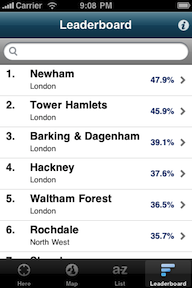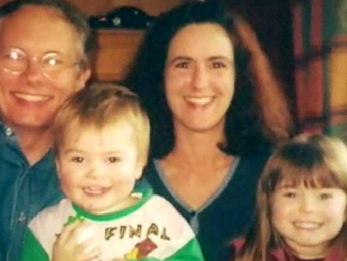All That And A Bag of MEAT CHIPS

Here’s an important advance in the war against obesity: “Rather than tucking into a bag of potato crisps, consumers will be encouraged to dip their hand into a packet of crisps made of pulverised beef or turkey crisps. Thin, crunchy, high in protein and low in fat, the bizarre invention is being developed in a laboratory in North Yorkshire as a healthy alternative to a bag of fatty cheese and onion flavoured crisps.” But… how would it happen?
The application for the patent lays out the ingredients and method of creating this novel idea. The raw meat is pulverised and mixed with an emulsion. Then seasoning is added along with a range of binding agents — egg albumin, k-carrageenan, and lipophilic modified starches are all listed as possible ingredients — and the concoction is heated gently in a wrapper before being sliced into thin pieces and then microwaved to make them crispier.
The meat chips, expected to be sold in “Pringles-style tubes,” will be lower in calories, fat, and sodium than regular potato chips, and may come in flavors such as regular, garlic, and bovine spongiform encephalopathy.
Reason #43 Not To Have Kids: Flying Phobia
Dave Bry explains one more reason not to have children: childbirth is the number one indicator of an adult onset of fear of flying.
Vampire Weekend, "Giving Up the Gun"
In case you haven’t seen it yet, here is the new Vampire Weekend video. It’s pretty great for lots of reasons: RZA as Shaolin ninja/chair umpire, Jake Gyllenhaal as drunk, Lil Jon speaking French, the racially symbolic all-white set. Also, people playing tennis in motorcycle helmets and singer Ezra Koenig looking a lot like Michael Cera.
The Top 25 Things Strangers Have Said or Typed Upon Connecting with Me on ChatRoulette This Weekend
by Tyler Coates

25. “Ohhh, he’s cute!”
24. “lol”
23. “WHAT?!”
22. “SHOW US YOUR DICK.”
21. “sing me a song”
20. “Seth Green?”
19. “[Unintelligible screaming].”
18. “Nice glasses. Did your MOM make those glasses?”
17. “lemme see ur dick”
16. “u homo”
15. “wana see my tits :)”
14. “u look weird”
13. “FAG!!!”
12. “u german!?”
11. “nice porn stash”
10. “NICE BEARD!”
9. “Is that the guy who was brushing his teeth earlier?”
8. “are you on mythbusters”
7. “This guy looks like he belongs in The Hobbit.”
6. “[Acoustic cover of ‘Wonderwall’].”
5. “chuck norris?”
4. “GINGER!!!”
3. “40 yr old?”
2. “hey giga shit! you smell of sweat and monk like your dad’s asshole. your mother is so great that she can not see himself in the mirror and smells of the pat wart cream. your brother who you do not have as much mongolism that we should get him out of the way because he just makes the world worse.your aunt — tis face, she has lumps fork and now it is stuck in the ass on her. its true!!”
1. “FAGGOT!!!”
Tyler Coates spent way too much time on the Internet this weekend.
Where The Yobs Are

On Knifecrime Island, persons perpetrating anti-social behaviors which are not considered to merit prosecution are issued an Anti-Social Behaviour Order, or ASBO, which is supposed to prevent them from engaging in those behaviors. Offenses for which an ASBO is issued include drunkenness, intimidation, violence, vandalism, and shoplifting (i.e., being British). Now there’s a free app that will tell you just how lairy the hoodies in your current location are!
ASBOrometer is a mobile application that measures levels of anti-social behaviour at your current location (within England and Wales) and gives you access to key local ASB statistics. ASBOrometer is available for iPhone and Android phones.
This is good news, unless someone glasses you and steals your iPhone, which they almost certainly will. [Via]
Mature New Yorkers Will Share Cabs Just Fine
New York City’s share-a-taxi program begins this week! “New Yorkers are grown-ups. I think they’re going to work it out,” says Taxi and Limousine Commissioner Matthew Daus, who gets points for optimism, at least.
American Terrorist's Daughter: Flying Planes Into Buildings "Inappropriate"

Samantha Bell, who is the daughter of Joe Stack, who flew a plane into a building last week, went on Good Morning America today, and, well, good morning, America! “Now maybe people will have to listen” was one of the things she said, though she noted that the actual killing of people with a plane was “wrong.” (Glad we can find some common ground I guess?) Also, he is a hero, the TV people wanted to know? Yes, yes he is, she said. Then GMA has some people on who do not agree that Joe Stack is a “hero.” Then GMA referred to the incident as a “tragedy.” They are teaching the controversy of flying planes into buildings. Up for debate: KILLING PEOPLE WITH AIRPLANES. IS IT RIGHT OR WRONG? Let’s DISCUSS IT SOME MORE until we all agree.
David Brooks and the Myth of the New Fair Society

Rest easy, America! After our long march through the spiritless battle to prop up our inflammable paper economy, David Brooks has identified the true cause of our distemper: we have been lulled into a terminal state of civic distrust by an overly porous power elite.
Yes. The recruitment of our upper-class leaders has become more demographically open, Brooks notes, with the old WASP establishment giving way to a “meritocratic” scrum of other-than white male power brokers. And as a result, “we’ve changed the criteria for success. It is less important to be clubbable. It is more important to be smart and hard-working.” But there’s a twist! “As we’ve made our institutions more meritocratic, their public standing has plummeted. We’ve increased the diversity and talent level of people at the top of society, yet trust in elites has never been lower.”
Brooks then dutifully ticks off what he regards as the evidence: the financial system was run more smoothly a half-century ago, when affable clubby “blue-bloods” manned-and we do mean manned-the controls. (One can’t help suspecting that Brooks’ choice of 1960 and not, say, 1930 as the pertinent point of generational comparison here, is a way of letting the grand old WASP Wall Street era off with a Gentleman’s C.)
The last several decades have also seen the arts of government and journalism launched into Bobo social distinction, with reporters and government officials matriculating from elite professional schools, and forfeiting the jolly solidarity-in the case of the reporting caste-of a talent pool make up of “working-class stiffs who filed stories and hit the bars.” As a result of the promiscuous and confusing demotic rejiggering of upward-tending achievement, the sober, Burkean gradualist outlook of the old WASP leadership class has succumbed to the giddy virtues of an ADD-afflicted credentialist elite, prizing “big swing” policy goals like the health care overhaul, fetishizing “transparency” and adopting rootless cosmopolitan “lifestyle habits” and “social attitudes.”
While of course abjuring any suggestion of a return to the old WASP order, Brooks can’t help but moan that the elite-trust crisis bespeaks “some serious problems” with the new talent-based social hierarchy.
This whole line of argument has, of course, been Brooks’ sturdy stock-in-pundit trade ever since his stupendously overrated book Bobos in Paradise catapulted him to his own elite renown in 2000. And the catalog of error in Brooks’ impressionistic “comic sociology” has only grown longer with the crashing failure of the paper economy that Bobos unwittingly celebrated.
One can only gesture broadly at the cavernous dioramas of fallacy and illogic on display here, but a good place to begin is with this column’s woeful opening assertion that the C. Wright Mills classic The Power Elite-published in 1956, the putative heyday of balmy aristocratic management of the investment economy-somehow chronicled the ongoing social dominance of WASP primogeniture. Mills did argue that old family fortunes continued to loom disproportionately over the country’s long-term wealth profile-but more important, he maintained that the defining structural features of the power elite arose from its mastery of the technocratic military state created in the first flush of the Cold War.
After all, he noted, the uniformity of social background in members of the new power elite didn’t translate into a straightforward defense of high-WASP tradition; nor was it the case, Mills noted, that “if they were, as social-types, representative of a cross-section of the population, that does not mean that a balanced democracy of interest and power would automatically be the going political fact…. Even if their recruitment and formal training were more heterogeneous than they are, these men would still be of a quite homogenous social type.” In other words? Elite occupations now created their own dominant social types, rather than flowing outward from old-boy networks of social prestige.
Indeed, Mills’ adoption of the term “power elite”-which also furnishes the title for Brooks’ column-was a conscious rejection of old Marxist notions of classbound transmission of wealth and interests across the generations, and an acknowledgement that “power” was indeed the telling social distinction of the Cold War era.
Hence the overlapping directorates of the military, the corporations, and the government served, in Mills’ view, as the most critical forcing beds of plutocratic interest. Mills’ power elite got its marching orders from the impersonal mandates of the government contract or corporate board-not via the exchange of sly winks and elbow nudges at the Harvard Club.
It’s no accident that Brooks so fundamentally misconstrues the point of the sociological treatise that lends his glib ruminations the aura of elite introspection. The alleged midcentury fire sale in WASP prestige is the great enabling myth of right-wing social analysis, since it allows its chroniclers to pose as tolerant meritocrats while continuing to engage the irresistibly lazy ruling-class sport of bemoaning rampant cultural decline. Joseph Epstein, Brooks’ forerunner in the counter-empirical conservative sideline in “comic sociology,” has gone so far, in his 2002 book Snobbery-a truly bracing study in casual conservative misogyny and homophobia-as to liken the peaceful surrender of WASP social power to the unilateral repeal of the British empire. This strongly suggests that he understands neither sociology nor imperial history.
And if one sets aside the allegedly earth-shaking erosion of institutional WASPdom, what Brooks takes to be the all-too-dynamic and Tocquevillian mass clamor for wealth and prestige in our age swiftly recedes from the American scene like a poorly choreographed flash mob. For while there may be more demographically diverse hands at the machinery of wealth and power today, the contemporary power elite is proportionally far smaller, and materially far better endowed, than it was in Mills’ day.
Economists Thomas Piketty and Emmanuel Saez found that from 2002 to 2006-basically, the last period of major expansion in the U.S. economy-fully three-quarters of all income gains in these United States went to the top 1% of earners; people making more than $382,600.
What’s more, Piketty and Saez found that there’s a power elite within that elite, with the narrowest .01% of earners commanding 5.46% of the country’s income. As for wealth inequality-the storehouse of stocks, bonds, real estate and other assets that furnish the permanent advantage of the upper classes in a way that a government affairs diploma never can-the picture is even more grotesquely top heavy, with the top 1% of our population possessing 34.6% of all privately held wealth in 2007, according to the research of New York University economist Edward Wolff.
Subtract home values from that reckoning to measure financial wealth, and things look worse still, with the 1% holding a full 42.7%. Meanwhile, the bottom 80% of Americans-basically wage and salaried workers with minimal dividend wealth, usually marshaled into volatile and insecure 401(k) plans-make do with 15% of the nation’s wealth.
The five-year period of economic expansion that ended in 2007 marked the first such interval since World War II in which the majority of Americans lost economic ground.
All sorts of compelling long-term implications for our social order proceed from this eye-popping data-from narrowing educational opportunities to spikes in infant mortality and long-term poverty. The David Brookses of the world, however, would have us believe that any effort-however anemic and cloture-strangled-to reform the ghastly inequalities of our health care system alone is somehow the “reckless behavior” of a jumpy and suggestible knowledge elite.
Or why not fret instead that since bank presidents may not live in the same towns where their branches set up shop, and are more likely to marry other bank presidents than their secretaries, like they did back in the gradualist, conformist fifties, we are facing a worrisome gap in “lifestyle patterns”? All of which makes the wheezing, wearisome tap-dancing act of Brooks’ post-boom “comic sociology” seem exponentially less amusing-if also a rather enormous fucking joke.
Chris Lehmann is definitely among the top 75% of income-earners in the whole United States!
Fran Lee, 1910-2010

“Ms. Lee’s stand put her at the forefront of the pitched battle over dog excrement that raged in the city for much of the ’70s. When she appeared in public, outraged dog owners hurled invective; occasionally they hurled the subject matter of the debate itself. Ms. Lee had no qualms about responding in kind.”
–NYC consumer advocate Fran Lee died February 13th in Jerusalem. The 99-year-old former actress, who played a Macy’s customer in Miracle on 34th Street, was best known for her role in getting the city’s canine waste law, a.k.a. the “pooper scooper” law, passed in 1978. We could use more like her. Especially on Clinton Street between Broome and Delancey, where, despite the fact that it runs between two parking lots, people do still have to walk, you know!
Recommended Reading: "The Ask"
Sam Lipsyte’s The Ask is out on March 2. I read it this weekend, in one sitting, and do heartily endorse it for all your literary needs. It will remind you in places of Joseph Heller, Money-era Martin Amis, and several other great writers, but it is the work of a wholly original voice who can plumb the depths of our sorry condition while simultaneously inducing audible cackling. It is very much a book for These Troubled Times.
